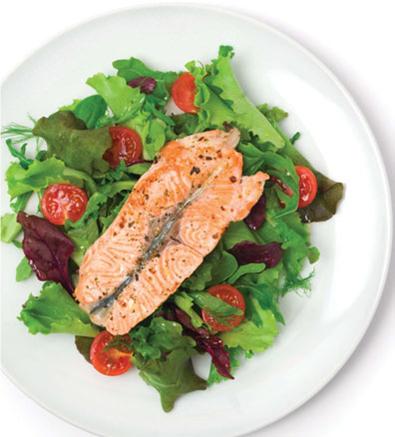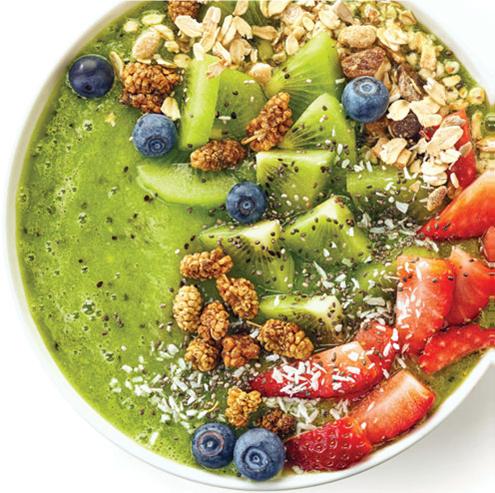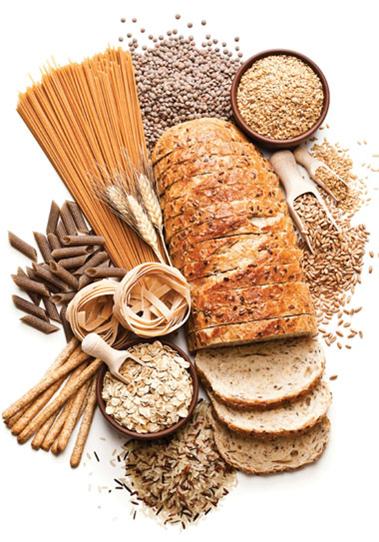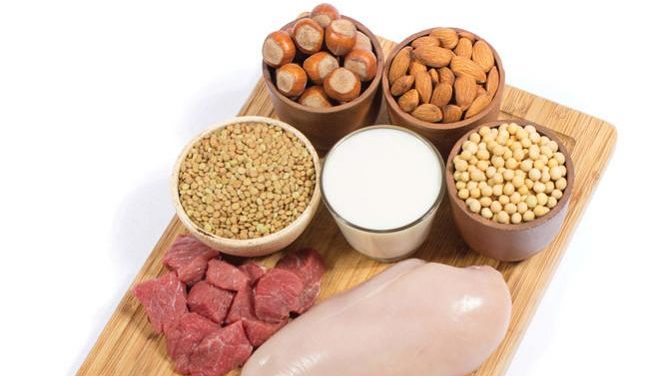We are all guilty of overindulging on certain foods and causing an assault on our digestive system. However, you can still follow the recommended intakes without sacrificing all the things you love to eat. If you include the right amount of protein, fats, fibre, carbohydrates, fruit and veg in your diet this can help to prevent deficiencies or certain diseases such as diabetes, high blood pressure and arthritis. You’ll also maintain a healthy weight too, so read on for your road map to balanced eating – your body will thank you for it.
-
- Protein power Protein gives us the energy we need to get up and go, while also supporting mood and cognitive function. “Our bodies need protein to maintain cell growth and muscle, as well as to make the hormones and antibodies that keep us fit,” says Isabel. “Women should aim to have 45g of protein per day, while men should have around 55g. Protein should come from a variety of sources, so meat-eaters should consume a mixture of plant and animal dishes. Good selections of animal protein are meat, eggs and dairy, while grains, beans, lentils and nuts are great plant choices.” Having meat tonight? A serving of any meat should be the size of the palm of your hand or the thickness of a deck of cards. If you’re having nuts for a snack, a good portion is what you can hold in a cupped palm.
-

- Include good fats While bad fats can wreck your diet and increase your risk of certain diseases, good fats protect your brain and heart. “Fat is considered to be the enemy, but we do need some fat to help absorb fat-soluble vitamins such as vitamin A,” says Isabel. “Your diet should consist of 35 percent fat with no more than 11 percent of that being saturated fat, as high levels can lead to raised cholesterol and heart disease. To help reduce your saturated fat intake, try having skimmed milk instead of the full fat variety or use sunflower oil instead of lard. There are also two essential fatty acids that we need in our diet – omega 3 and omega 6.” Food sources include oily fish, like sardines. Aim to consume at least two portions per week – like meat, a serving of oily fish should be the size of your palm.
-
- Get your five-a-day Are you getting five different portions of fruit and veg a day? “Fruit and vegetables are packed full of vitamins and minerals that are essential to our health,” shares Isabel. “Mushrooms in particular have B vitamins that help keep hair, skin, and nails healthy. Red peppers are high in vitamin A and C, which help to protect eyesight and keep the immune system functioning. Fresh oranges are a source of calcium used to maintain healthy teeth and bones, while cranberries are high in the iodine that’s essential for brain function.” It’s handy to note that one portion of veg is roughly the size of a medium apple, while a fruit portion consists of a handful of berries.
-

- Fire up with fibre “Fibre has many different roles in the body, from improving digestion to supporting heart health,” explains Isabel. “Fibre can help to reduce constipation as it moves food through your gut, and it can keep your gut flora in tip top shape, too. It is recommended that you consume 30g of fibre per day. Dietary sources include wholegrains, fruit and vegetables. Try having wholegrain cereal with two cupped palms of fresh berries for breakfast or a smoothie bowl which combines different sources of fibre.”
-

- Start sipping “Most people forget how important it is to stay hydrated as our bodies are made up of 60 percent water,” explains Isabel. “You need between one and a half to two litres of fluids per day – mainly water, but this can also include milk, coffee and tea. Fluids keep your body temperature regulated, joints lubricated, and the nervous system protected. While you do get some water intake through food, it’s important to make sure you drink throughout the day to avoid dehydration, which can cause headaches and tiredness.”

- Eat your carbs “Carbohydrates play an important role in the body and should be the main energy source used to keep organs and muscles functioning,” explains Isabel. The UK government says approximately a third of your daily intake of food should be carbohydrates, but only five percent of this should be made up from sugars. This is because too much of the sweet stuff can lead to obesity and type 2 diabetes. Your carbohydrate intake should be from wholegrains, cereals, bread, pasta and potatoes. If you’re eating pasta, try to have the equivalent of the size of a clenched fist. This may seem like a little, but remember that it doubles in size once cooked.


























